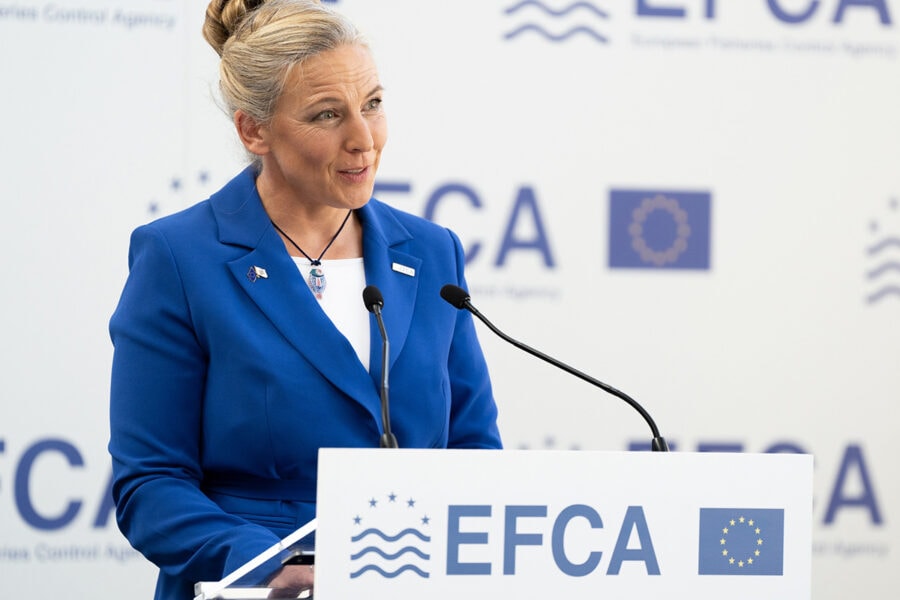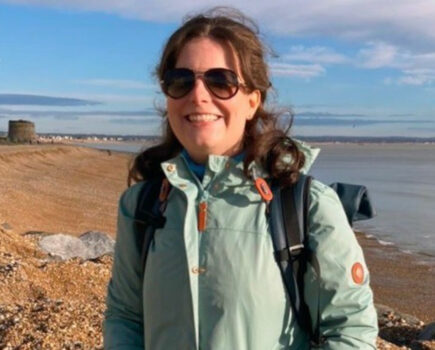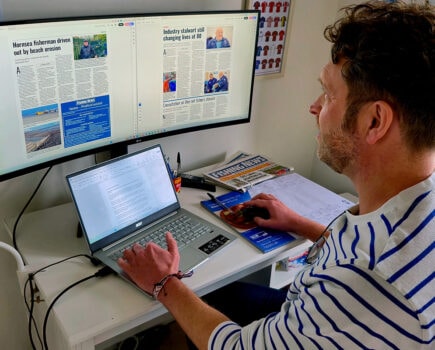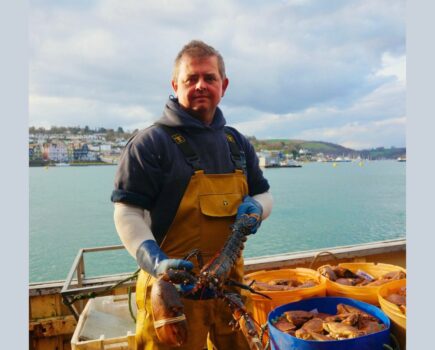“I grew up on the Beara peninsula in West Cork, Ireland, with the ocean around me,” Dr Susan Steele, executive director at the European Fisheries Control Agency (EFCA), told Fishing News. “I decided at the very early age of three that I was going to be a marine biologist.”
By the age of 12, Susan was working on local fish farms, cleaning tanks and saving her wages to go to Sherkin Island Marine Station to study marine biology courses.
“I bought my first boat from Bere Island when I was 18, and qualified as a dive instructor. I studied marine biology at Bangor, North Wales, and by the age of 23 I had my PhD from University College Cork (UCC) – and every moment that I was not studying the sea, I was on it or under it.”
Following a postdoctoral position in London, Susan began teaching at the Bord Iascaigh Mhara (BIM) Regional Fisheries College in Castletownbere. “I took immense pride in teaching at the college, offering a wide variety of courses ranging from first aid to radio, and teaching the students methods for gutting fish and proper icing techniques. I later set up aquaculture training and seaweed courses.”
When a new marine centre opened in Clonakilty, offering a dedicated space shared between BIM, the Sea-Fisheries Protection Authority (SFPA) and the Department of Agriculture, Fisheries and the Marine, a new opportunity arose.
“BIM saw the value in an innovation centre, and I saw the potential. I initiated a graduate scheme with UCC, attracting incredible graduates. In the first year alone, we collaborated with over 200 seafood companies and start-ups.”
It was a trip to Newfoundland that led to a ‘sea change’ for Susan. During her visit, capelin were spawning, resulting in beaches teeming with fish. “The sheer volume of capelin was so immense that you could simply walk along the beach with a bucket and collect them.”
However, the coastal villages of Newfoundland were deserted, with boarded-up houses standing as silent reminders of a once thriving community. Realising what could happen without good fisheries control and regulation, Susan applied to join the SFPA, where she went on to spend almost 10 years as chair before joining EFCA in September 2021.
Based in Vigo, Spain, Susan leads a diverse team of 20 different European nationalities. The agency’s mission is to uphold the highest common standards for control, inspection and surveillance under the CFP. It aims to contribute not only to sustainability but also to creating a level playing field for fishermen.
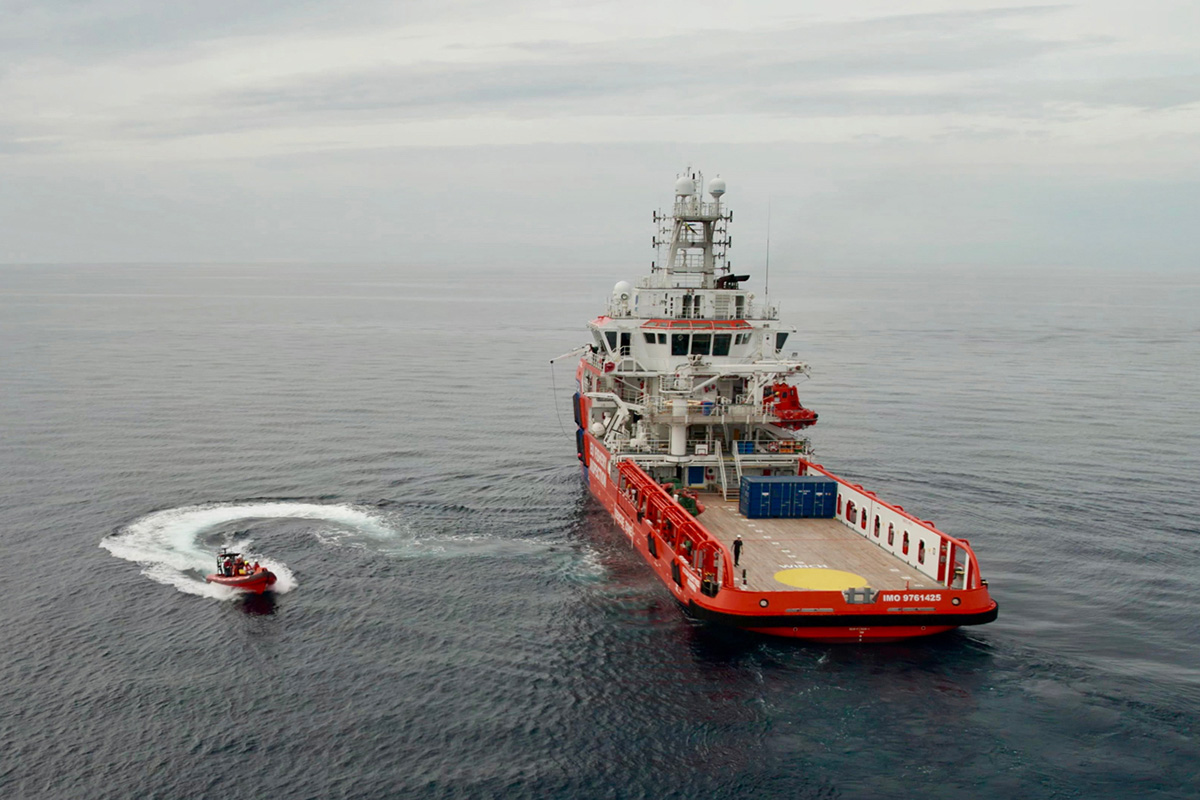
EFCA charters three offshore patrol vessels — the Ocean Protector, Ocean Guardian and Ocean Sentinel (pictured) — as well as an aircraft. In the last year alone, the agency has co-ordinated 44,993 inspections, 4,230 of which led to the identification of at least one suspected infringement.
Susan’s role involves a varied range of tasks and responsibilities – all of which benefit from an early-morning energy boost.
“For the last 20 years, I have started every day with exercise. I run to the gym, go to a CrossFit class and arrive at work bursting with energy. I always do this, even when travelling.
“Today, I am travelling to Aalborg in the north of Denmark where I will visit remotely piloted aircraft systems that the European Maritime Safety Agency is providing for fisheries control to Danish authorities. I’ll then travel to visit the Danish patrol vessel Nordsoen. The work of EFCA is amazing, as we work with dedicated partners in all member states. By working together, we achieve better harmonisation and effectiveness.
“Over the next few days, I will visit the Danish Fisheries Monitoring Centre and meet the members of the steering groups of EFCA’s joint deployment plans. I then will attend the European Maritime Day in Svenborg – which next year takes place in Cork – and open workshops we’re running on Coastguard functions. I’ll also meet with other agencies and colleagues from DG MARE, which organises this excellent event.”
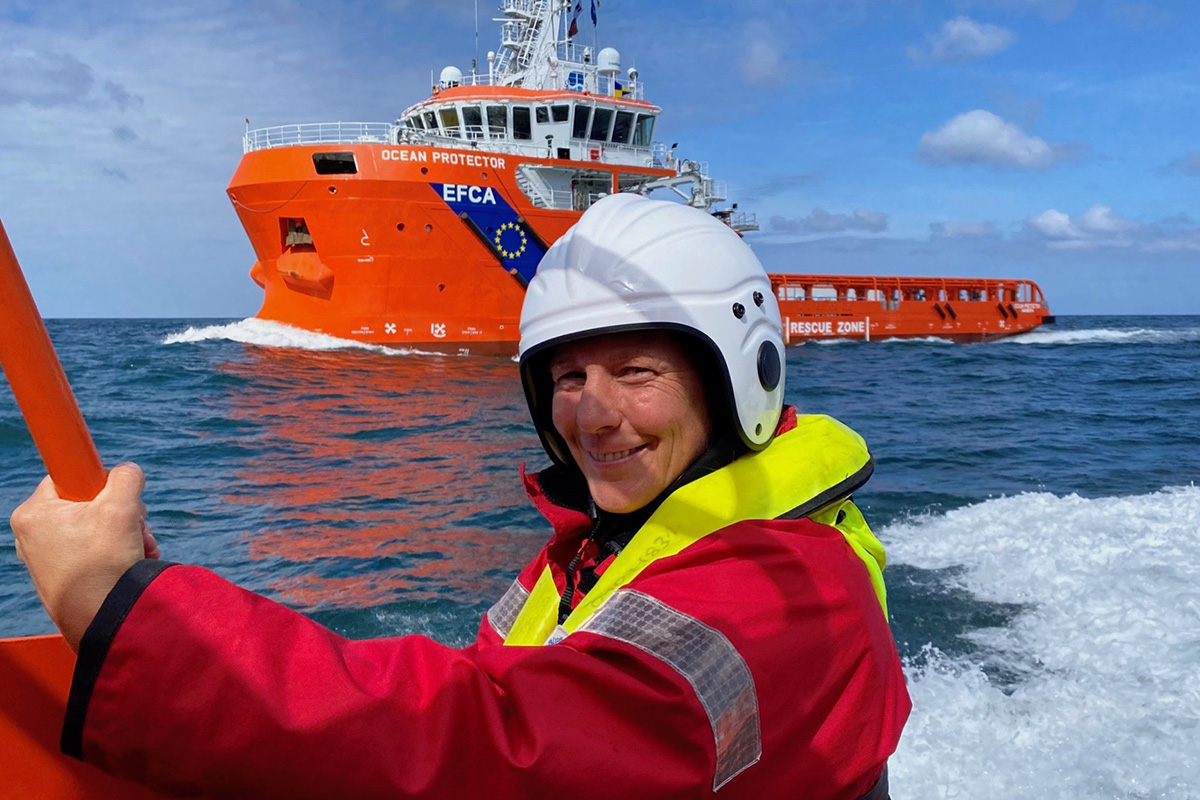
Susan’s passion for the marine environment extends to the benefits of eating fish and seaweed. “Despite having reached the age of 50, I’ve completed over 80 marathons and ultra-marathons. I firmly believe that my diet of fish and seaweed fuels me. If you delve into the science of seaweed, fish and fish oils, you’ll be inspired to incorporate them into your daily routine. They have a profoundly positive impact on our brain and body.”
However, travelling doesn’t mean an escape from everyday responsibilities. “I have had the privilege of visiting most of the coast of Europe, including the outermost regions, and many coastlines of other countries. We are so incredibly lucky with the diversity and the incredible people working in those regions.
“The challenge while travelling is that there is still the same number of emails, approvals and meetings – but due to the ability to work remotely, and the use of videoconferencing tools, it all can be managed.”
With such an extensive workload, good communication is vital. “I work as most executive directors with significant roles in governance do, and ensure that the best use is made of taxpayers’ money to deliver services. Communication is key. I use every method, both face to face meetings and online.”
When in Vigo, Susan’s day at the office may end, but her responsibilities continue. “I leave the office and walk or cycle home – one run a day is enough – but I am never off. We have lots of events in the evenings – and lots of work to do.”
Despite the challenges, Susan is optimistic about the future for fisheries. “European fish stocks are improving slowly, but we still have a lot of work to do. This turnaround is thanks to the concerted efforts of fishermen, recreational fishers, policy-makers, scientists and regulators.
“We all have to work together. An example is that we are witnessing a significant recovery in bluefin tuna. We’re not yet where we could be, but we’re making progress. And as the stock improves, fishermen can catch more, leading to higher profits.”
This story was taken from the latest issue of Fishing News. For more up-to-date and in-depth reports on the UK and Irish commercial fishing sector, subscribe to Fishing News here or buy the latest single issue for just £3.30 here.
Sign up to Fishing News’ FREE e-newsletter here.

